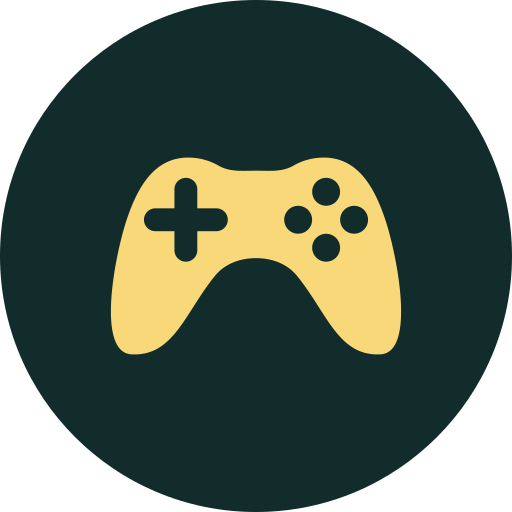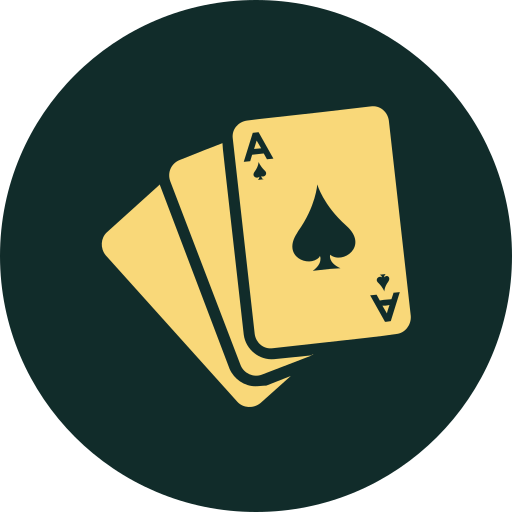Internet use addiction isn’t just a problem in itself. While it’s frustrating to see someone giving up on responsibilities, social engagements, and friends, it’s even more frustrating to see them suffering from depression. But studies show that too much internet use can lead to behavioral health issues.
The science around this is complicated. But essentially, the brain’s rewards system gets rewired to focus on the internet when someone spends too much time online. The online world moves a lot quicker than in real life. People used to getting quick rewards online develop emotional regulation problems in the real world.
As one goes to the internet as a coping mechanism, their ability to make use of other coping mechanisms falls away. This creates a vicious cycle familiar to those who understand drug addiction. To an addict, the internet causes problems that can only be solved by more internet usage; interference and rehabilitation is the only way to get someone out.
Sometimes, it can be a bit tough to figure out whether or not one is suffering from depression. While depression’s symptoms often consist of an inability to perform important tasks, others are able to mask their depression — you’d never realize. This is known as high-functioning depression — check out our article on it to learn the symptoms.
It’s often said that the internet is shortening people’s attention spans. However, this being a cliche doesn’t preclude it from being true.
This isn’t because of a hackneyed pseudo-science like “TV rots your brain.” The shortened attention span isn’t because of the internet but because of the way that information is formatted on the internet.
Take, for instance, written content on the internet. When a person reads a well-written book, they’re getting information in the form of thought-out, revised, and often complex sentences. These are strung into paragraphs that demonstrate concepts in-depth.
These paragraphs are put up against other paragraphs, which provide multiple points of view or develop an argument. Then, this information is organized into chapters so one understands exactly where these points fit into the writer’s central argument.
This is not true of most written content on the internet. Twitter — which is perhaps the most popular writing platform on the internet today — has a famously short character limit. A person can hardly develop a single thought at this time.
This has led to people firing out quick “hot takes” instead of fully formed concepts. On top of this, more outrageous, polarizing, and extreme takes get popular, which encourages people to think in a more extreme way.
All of this is added to the fast-paced nature of the internet. People are encouraged to eschew grammar and syntax for speed.
This is also true of applications like TikTok, which favor fast-paced, simple, stimulating content. These things aren’t bad in moderation, but when they become the main source of information people consume, they cause attention problems.
Short attention spans don’t just cause people to become distracted easily. The fact that one isn’t able to focus on a task can easily become frustrating and depressing. When one isn’t able to recall a thought that they were just having, they can easily see a significant drop in their self-worth.
A short attention span can lead to one failing to absorb information or complete tasks, which can make one feel as though they have lower intelligence. It can also decrease external perceptions of a person, which will also lead to poor self-worth.
The best and worst thing about the internet is just how many things you can do on it. It’s the instant library, and the kaleidoscopic vasts of information on it can be liberating or destructive.
Because one can access so many things on the internet — and access them immediately — it’s easy for the internet to fuel other addictions. If one of your loved ones has suffered from one of the following addictions, they might be suffering from an internet addiction as well.

A pornography addiction develops when someone’s emotional state becomes dependent on pornography. This person might become less sexually satisfied with their partners. They might prefer pornographic images to sexual activity. Pornography addiction used to be significantly less prominent. Now, however, everyone has instant access to pornography whenever they want it. This has led to many more people becoming addicted than ever before. Generally, people who develop pornography addictions have other pre-existing behavioral health issues. However, the fact that excess internet usage leads to addiction and attention problems suggests a link. Pornography addiction is especially scary in this post-pandemic world where camgirl sites, OnlyFans, Fansly, and premium porn sites are generating more revenue than ever. A person can easily turn a porn addiction into a rough financial situation.

Video game addictions have become a very real problem in the 21st century. While perhaps exaggerated by some suburban middle-class parents, a dependence on video games can easily ruin someone’s life. All games operate on the human brain’s reward system. People like to win, and games inspire in one a sense of competition. Through repeated play, a person begins to desire that high feeling they get from competition more than they do winning. Videogames are especially stimulating in this regard. They move faster than board games and card games, creating a system of rewards that’s more effective than ever before. Just like certain parts of the internet, this is okay in small doses. However, it’s very easy for one to completely give themselves over to the rewards system of a video game. The internet makes playing video games easier than ever before. The platform Steam by Valve makes video games accessible and easy to buy, mobile gaming is becoming more and more popular, and online gaming allows people to interact with friends. If someone who previously wasn’t as into video games suddenly develops a video game addiction, keep on the lookout. They might have been sucked into this world because of excess internet usage.

Online gambling is also growing in popularity. Gambling sites are getting more secure, more varied, and more aesthetically pleasing. While it’s good that fewer people are getting scammed out of their money, someone can easily fall down the hole of losing money online. Just like gaming, gambling has been an issue since long before the internet. In fact, Leo Tolstoy himself wrote his early short novel, The Cossacks, to pay off his gambling arrears. You can explain it away with science, but at the end of the day, there’s something within the structure of gambling that addicts the human brain — that’s all you need to know. The world of the internet makes gambling addiction especially dangerous because of accessibility. A person no longer needs to call up their bookie, head to a casino, or find a local poker game to lose tons of money — they can simply go online. Not everyone who gambles is an addict. The key aspect of something becoming addicted to a substance or activity is impulse control. Impulse control is something that the more stereotypical addict (drug addict, alcohol addict) and less thought-of addict (gambling, internet) have in common. If you see that a friend of yours is atrophying in the aspect of impulse control, they might be on a slippery slope toward addiction.

Everyone likes to get new things. Shopping, receiving presents, and discovering new music all create a dopamine rush in the brain — it makes the world feel fresh, new, and alive. However, unlike receiving presents and discovering new music, you have to pay to shop. Some people, in the pursuit of this new world feeling, tank their bank accounts. If you read the above items on this list, you understand how this works by now. The internet makes shopping easier than ever, which makes addictions extra dangerous.
Deanna Crosby is a Licensed Marriage and Family Therapist (LMFT) with over 20 years of experience working with clients in recovery. Her expertise has catapulted her into the spotlight. Featured on several episodes of the Dr. Phil Show as a behavioral health expert, DeAnna is a routine contributor for NBC News, The Huffington Post, Elle Magazine, MSN, Fox News, Yahoo, Glamour, Today, and several other prominent media outlets.
After receiving her bachelor’s degree from the University of California in Irvine, Crosby did postgraduate work at Centaur University where she graduated at the top of her class with a CAADAC certification in Centaur’s chemical dependency program. Following her time at Centaur, Crosby received her Master of Counseling Psychology degree from Pacifica Graduate Institute, where she also attained a Doctoral Degree in Depth Psychology.
Accredited by:
New Method Wellness
We firmly believe that the internet should be available and accessible to anyone, and are committed to providing a website that is accessible to the widest possible audience, regardless of circumstance and ability.
To fulfill this, we aim to adhere as strictly as possible to the World Wide Web Consortium’s (W3C) Web Content Accessibility Guidelines 2.1 (WCAG 2.1) at the AA level. These guidelines explain how to make web content accessible to people with a wide array of disabilities. Complying with those guidelines helps us ensure that the website is accessible to all people: blind people, people with motor impairments, visual impairment, cognitive disabilities, and more.
This website utilizes various technologies that are meant to make it as accessible as possible at all times. We utilize an accessibility interface that allows persons with specific disabilities to adjust the website’s UI (user interface) and design it to their personal needs.
Additionally, the website utilizes an AI-based application that runs in the background and optimizes its accessibility level constantly. This application remediates the website’s HTML, adapts Its functionality and behavior for screen-readers used by the blind users, and for keyboard functions used by individuals with motor impairments.
If you’ve found a malfunction or have ideas for improvement, we’ll be happy to hear from you. You can reach out to the website’s operators by using the following email juanita@newmethodwellness.com
Our website implements the ARIA attributes (Accessible Rich Internet Applications) technique, alongside various different behavioral changes, to ensure blind users visiting with screen-readers are able to read, comprehend, and enjoy the website’s functions. As soon as a user with a screen-reader enters your site, they immediately receive a prompt to enter the Screen-Reader Profile so they can browse and operate your site effectively. Here’s how our website covers some of the most important screen-reader requirements, alongside console screenshots of code examples:
Screen-reader optimization: we run a background process that learns the website’s components from top to bottom, to ensure ongoing compliance even when updating the website. In this process, we provide screen-readers with meaningful data using the ARIA set of attributes. For example, we provide accurate form labels; descriptions for actionable icons (social media icons, search icons, cart icons, etc.); validation guidance for form inputs; element roles such as buttons, menus, modal dialogues (popups), and others. Additionally, the background process scans all of the website’s images and provides an accurate and meaningful image-object-recognition-based description as an ALT (alternate text) tag for images that are not described. It will also extract texts that are embedded within the image, using an OCR (optical character recognition) technology. To turn on screen-reader adjustments at any time, users need only to press the Alt+1 keyboard combination. Screen-reader users also get automatic announcements to turn the Screen-reader mode on as soon as they enter the website.
These adjustments are compatible with all popular screen readers, including JAWS and NVDA.
Keyboard navigation optimization: The background process also adjusts the website’s HTML, and adds various behaviors using JavaScript code to make the website operable by the keyboard. This includes the ability to navigate the website using the Tab and Shift+Tab keys, operate dropdowns with the arrow keys, close them with Esc, trigger buttons and links using the Enter key, navigate between radio and checkbox elements using the arrow keys, and fill them in with the Spacebar or Enter key.Additionally, keyboard users will find quick-navigation and content-skip menus, available at any time by clicking Alt+1, or as the first elements of the site while navigating with the keyboard. The background process also handles triggered popups by moving the keyboard focus towards them as soon as they appear, and not allow the focus drift outside of it.
Users can also use shortcuts such as “M” (menus), “H” (headings), “F” (forms), “B” (buttons), and “G” (graphics) to jump to specific elements.
We aim to support the widest array of browsers and assistive technologies as possible, so our users can choose the best fitting tools for them, with as few limitations as possible. Therefore, we have worked very hard to be able to support all major systems that comprise over 95% of the user market share including Google Chrome, Mozilla Firefox, Apple Safari, Opera and Microsoft Edge, JAWS and NVDA (screen readers), both for Windows and for MAC users.
Despite our very best efforts to allow anybody to adjust the website to their needs, there may still be pages or sections that are not fully accessible, are in the process of becoming accessible, or are lacking an adequate technological solution to make them accessible. Still, we are continually improving our accessibility, adding, updating and improving its options and features, and developing and adopting new technologies. All this is meant to reach the optimal level of accessibility, following technological advancements. For any assistance, please reach out to juanita@newmethodwellness.com